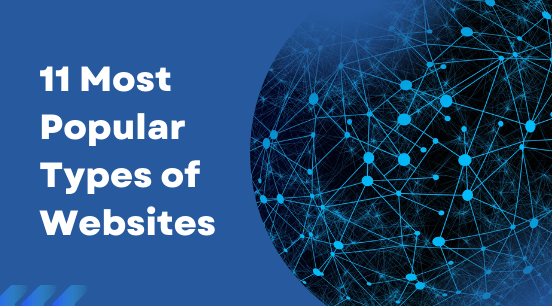Not all websites are the same. They have different aesthetics and functionalities. The layout, design, architecture, functions defined the types of websites. It’s always better to know what are the key differences between websites before you build one for yourself. Clear identification of types of websites helps you to decide what kind of website best suitable for your requirement.
This is not a complete list of types of websites but it’s a great launch point for you to get started in creating your website. The types of websites listed below are coupled with real-world examples of popular sites. By the end of this article, you’ll have a better idea of what to make a website about, and some insight into how to make it awesome.
1. Corporate / Business
Business websites are the largest and most diverse website type. Most of the businesses have one major objective from the website is to generate leads and market their products and services. The requirements of features and functionalities vary on a case-by-case basis but feature like, lead generation form, live chat, customer reviews, location are common for all business websites.
Small business needs a small website consisting of maybe about 8-10 pages about products and services while a corporate needs quite a large number of pages and can include many different types of useful information, content, and web pages that are helpful to different constituencies.
The design, layout, and architecture of a website depend on the target audience. For example, a business in kids' products has a different design and aesthetics than a business in infrastructure or manufacturing.
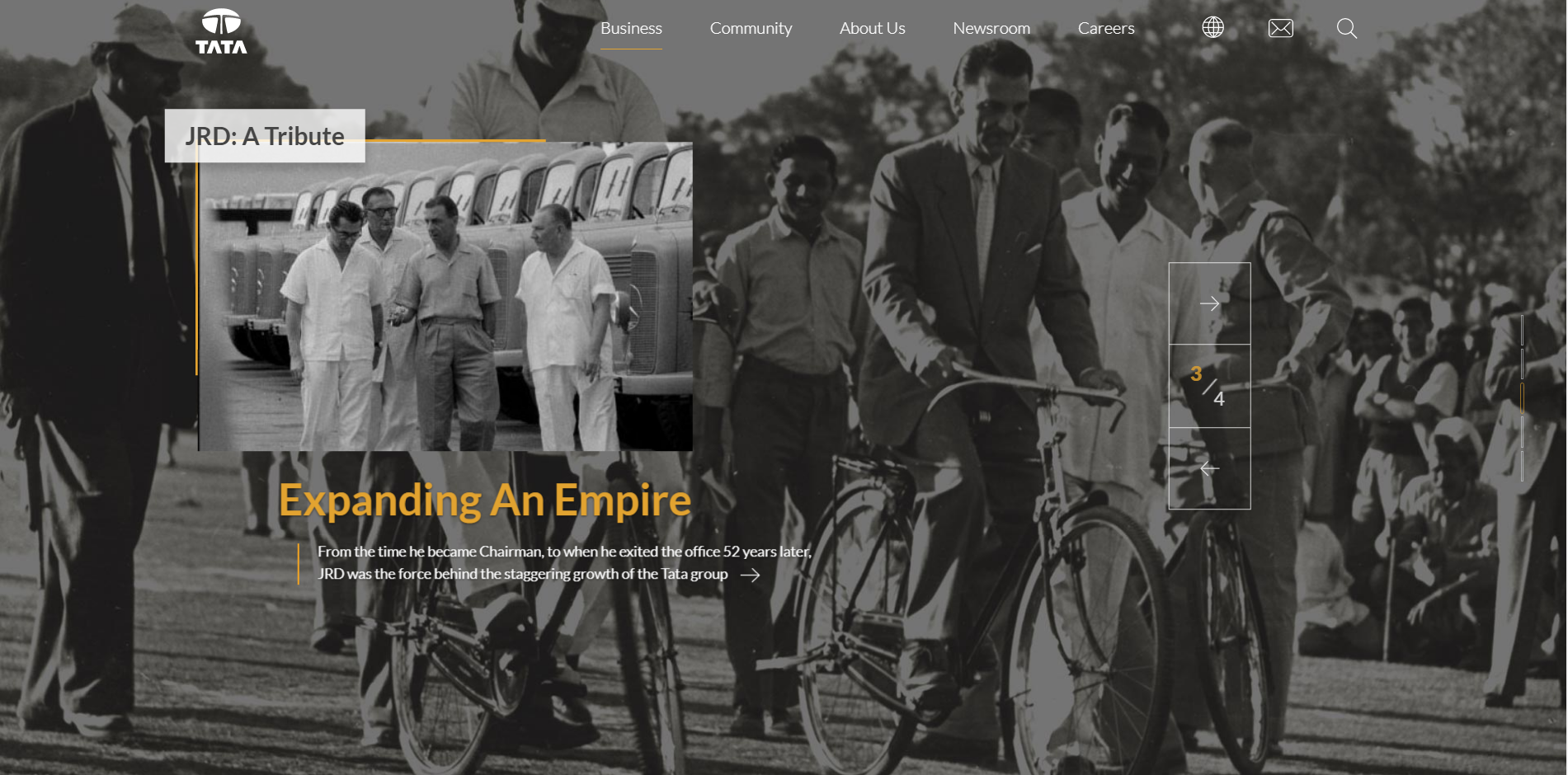

2. eCommerce
If you are planning to sell anything online, you need an eCommerce website. The design, layout, and architecture of an eCommerce site are very different from other types of websites. On eCommerce, users want to see the products and services you are offering. To grab users’ attention you need super quality images and an attractive layout.
Taking care of user experience on your eCommerce site is very important. Users have very limited time to check your site. If they don’t find it appealing they are gone and all your efforts to bring them on site are wasted.
WooCommerce, Shopify, Magento are major tools to build your online store. These tools are capable of handling any complex store with many product categories and a large number of products.
Dropshipping is one of the types of eCommerce websites that saves you the headache of managing your inventory. It allows you to send items directly from the supplier to your customer after they place an order on your website.
Key features of any eCommerce site are the attractive layout to display products, cart, checkout, secure payment gateway.

Resources: 28 Key Features to Accelerate Your eCommerce Growth
3. Blog / News / Media
Another type of website is content-oriented websites. These consist of blogs, news, and media websites. The main purpose of these types of websites is to produce a lot of content and organize them in beautifully designed layouts. These websites are frequently updated with the latest content and require CMS (content management system) to manage website content.
The most popular Content Management System (CMS) is WordPress. It’s used by the smallest hobby bloggers and some of the largest brands in the world, including TechCrunch, The New Yorker, and BBC America.
Blog, News, and Media sites have most of the features in common except few elements. Generally, blogs are about a particular topic where news and media sites are not fixed to one niche of business and can include many different types of content.
These websites are created for entertainment and educate users about certain topics and current trends. The better these websites can entertain and educate their audiences, the more money they can potentially make.
These types of websites typically also have a clean, minimal structure and layout so page elements can properly highlight published articles. That way, elements like the background don’t outshine the content to increase user engagement.
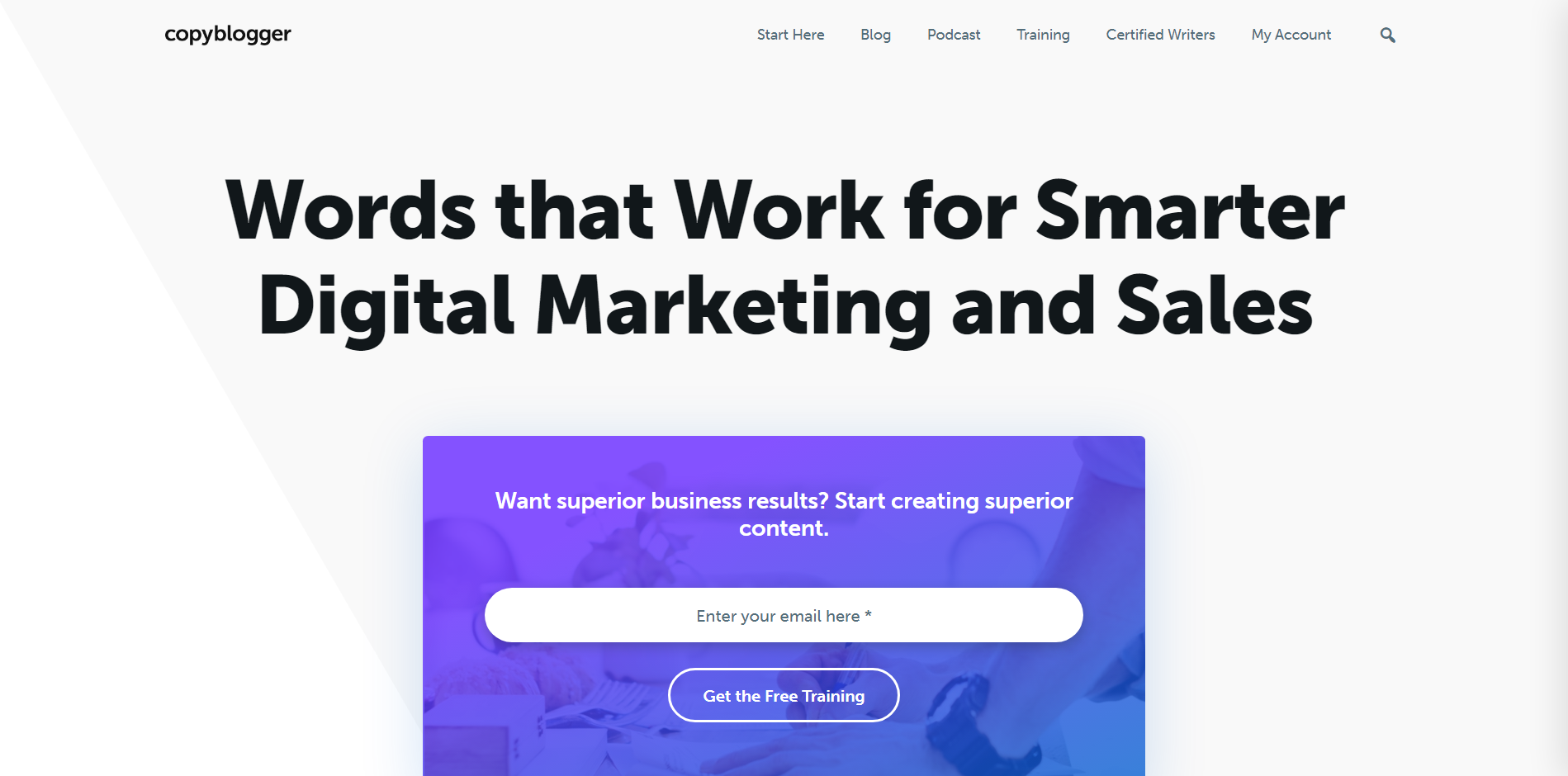

4. Personal
A personal website is a website that people create for their purposes. This can be to express themselves, to have a place to write, vent, share their stories, etc. It is a great way to put all of your thoughts in one place and express your unique personality to the world.
Personal and brochure websites are the simplest type of website. These types of websites are essentially content (text, images, videos, etc.) displayed on a static page. Online résumés, “about me” pages and certain small business websites fall into this category.
This is a type of website to create if you want to feature a person as a brand. The defining characteristic of a personal website is the title, which is the person the site is about. If you’re looking to monetize your site in the future, it’s smart to narrow your focus to a specific topic. This way, you can build a loyal niche audience that knows what to expect from your blog, and even views you as an expert in your subject matter.

5. Landing page
The landing page is the single-page website. The sole purpose of the landing page is to trigger action from users. Whether it is sign-up for a newsletter, making a purchase, or downloading an ebook. Many marketers create multiple different landing page websites to generate leads for their clients.
Landing pages can have high-value features like A/B testing, heatmaps, deep integrations, dynamic text replacement. Landing pages are geared towards maximizing conversions and since these landing pages are tied to ad campaigns, improving conversion rates can be extremely valuable.
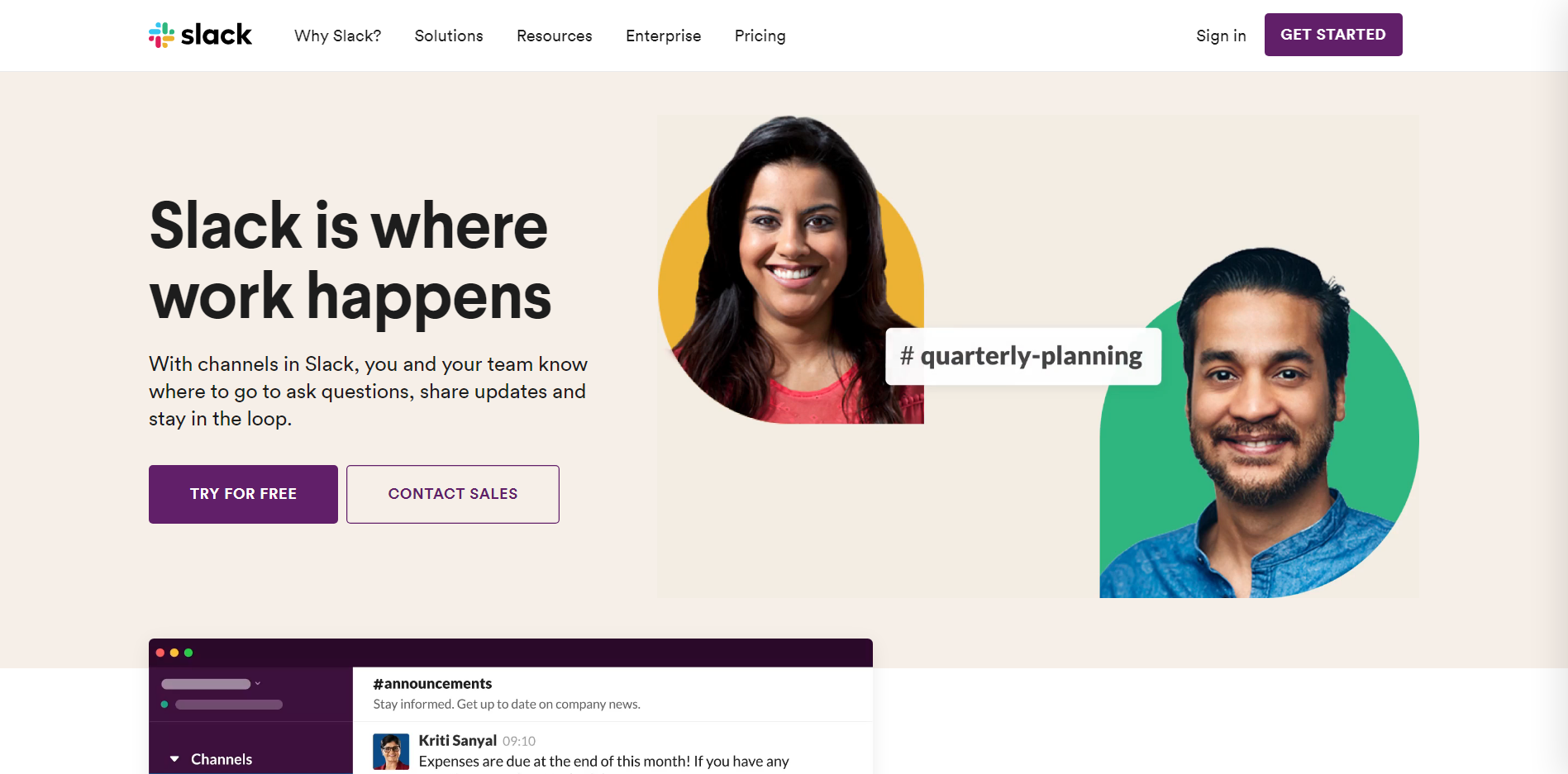
6. Brochure
This type of website is suitable for startups or very small businesses who are starting a business and have limited information about their company. This is typical to show off a small number of products or to provide basic information to potential customers.
You can think of a brochure website as a simpler version of a business website. It typically includes less information about the company than a traditional business website, which is more robust and SEO-friendly. In other words, you should opt for a full business website if you have the resources to make one.
However, it’s not critical. You might opt for one of these simplified types of business websites if you know that your online presence won’t be a significant driver for your business. In this case, you wouldn’t rely on the full functionality that a business site is typically used for – your site is primarily to have an online presence for the sake of it.
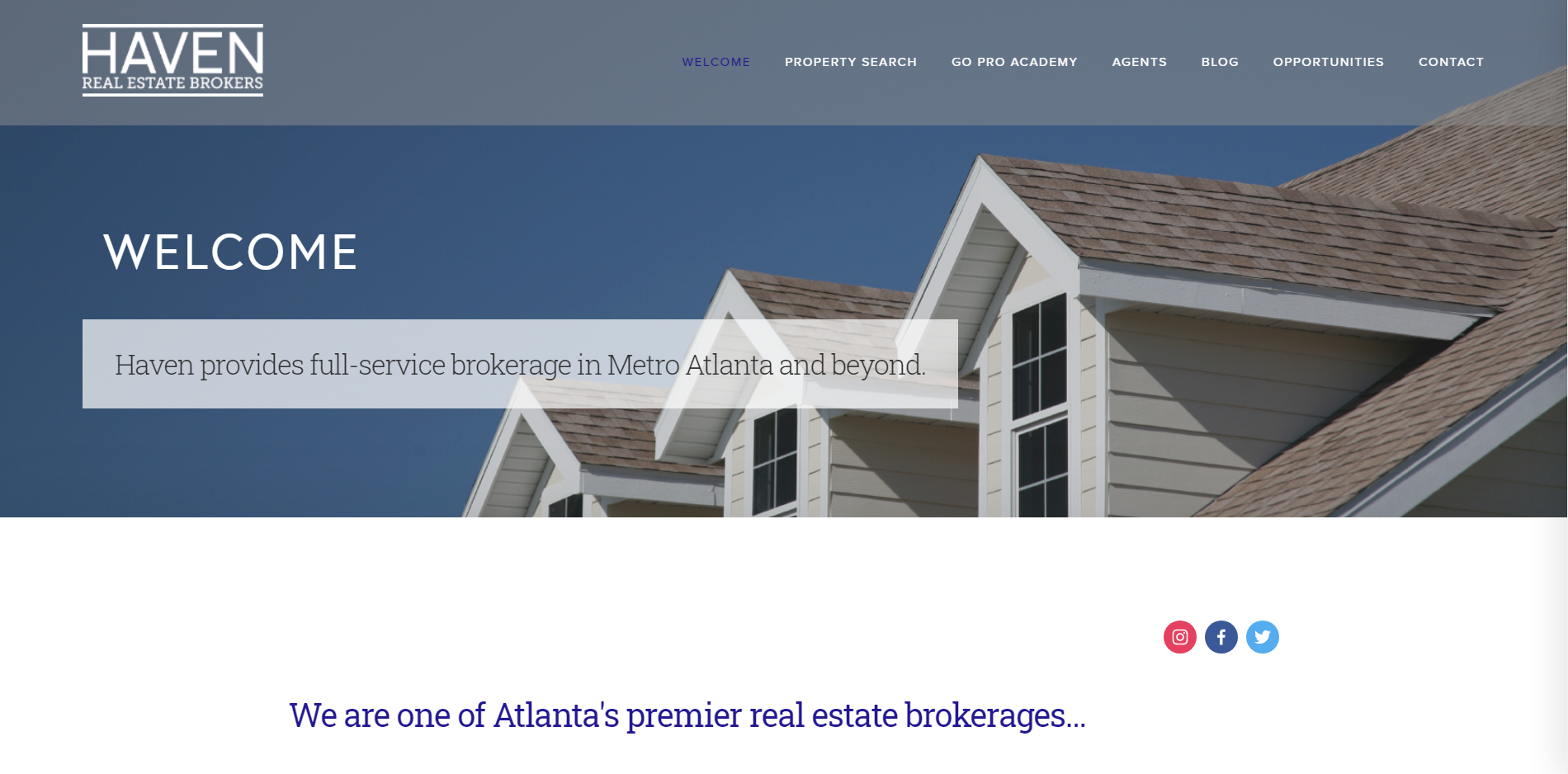
7. Portfolio
The next type of website is a portfolio website. Just like the name suggests, these are used as an online portfolio of your creations, in the same way, that a physical portfolio might work. Typically, this type of website is built by creative individuals like photographers, designers, and artists.
In the portfolio website, you display images of your projects or art in a photo gallery. When a user clicks on an image, they not only see it in greater detail but with more aspects of your work on that particular project.
A portfolio website is used to showcase your talents and abilities, and even help to get you more customers or improve your chances of securing a job position. That’s why they’re a must-have for creatives and freelancers who are looking for work.
A “contact” or “hire me” page is often included so there’s an easy way to get in touch with you about potential work.

8. Portals
Web portals are websites that require a login to gain access. They contain restricted content only meant for certain people. You can offer free and paid registrations or both. You could even offer infinite or finite access to the restricted content after a single payment, or you can offer recurring subscriptions that automatically renew.
eLearning portals are great examples of this, as they require students to log in to access their courses, funding, etc.

9. Review / Directory / Listing
These are websites where you can search for businesses based on their category and industry. These sites are created to compile a list of businesses in a specific niche and to review certain products and services.
Product Hunt is a great example of this type of website. On product hunt, users launch their startups and invite other users to review it and it offers a great list of tools in a specific niche you are looking for.

10. Community / Forum
These are websites where a community can come together and communicate with one another. There are many niche forums on the web that focus on a particular topic. Forums are one of the best ways to interact online. Think of them as public blogs where users can publish and interact with content. Reddit, Quora, and Stack Overflow are some of the most popular forums today.
Functionality for forums includes, but are not limited to user sign in, publishing, categories, voting (or liking), mentions, and threads.
Forum types of websites provide an organized way to publish public topic discussions. Users can register so they can start and contribute to discussions, and possibly even to view more topics.
Many businesses use a forum to offer self-serve support for their customers. That way, users don’t need to contact customer service as often, which cuts down on support costs as well as the overall amount of support tickets.

11. Social Network
You very well know about social networks that allow people to share pictures, videos, stories, ideas, and communicate through multiple mediums (private chats, groups, feeds, etc.).
Although they might be the type of website you frequent the most daily, building a social network is no easy task. Sites like Facebook, Instagram, and Pinterest were all built from scratch and cost millions of dollars to develop and maintain.
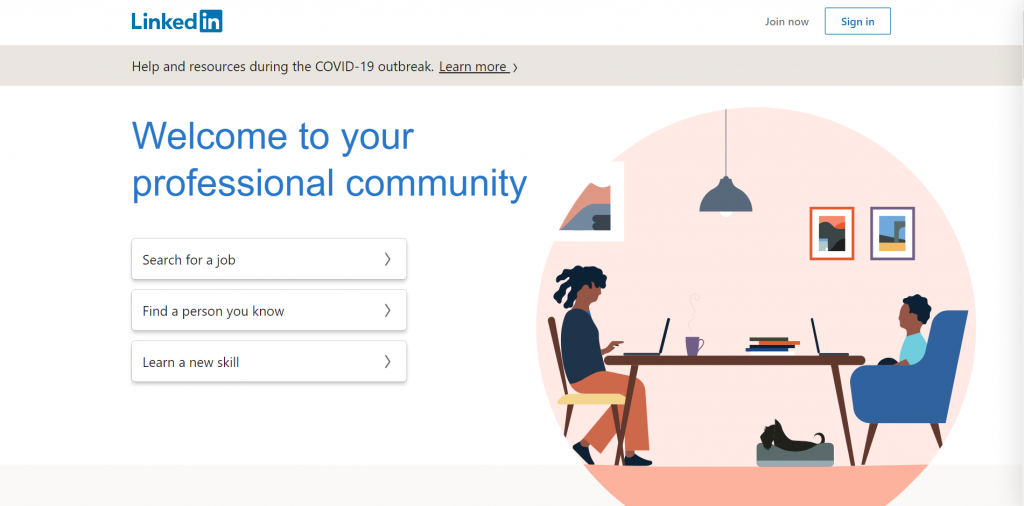
Final thoughts
There are many options when it comes to the types of websites to build. Ultimately, your choice should be a balance between your existing skills and resources, as well as what you’re willing to build to make it successful.
We hope this article was helpful and provided you with some inspiration on how to create these types of websites for yourself. If you’re looking to experience one of the easiest ways to build a website, feel free to give Realmonkey a try. Our team of experts will be there to help you every step of the way.
